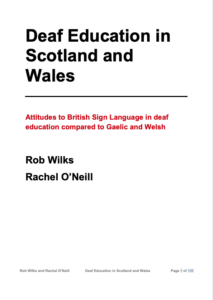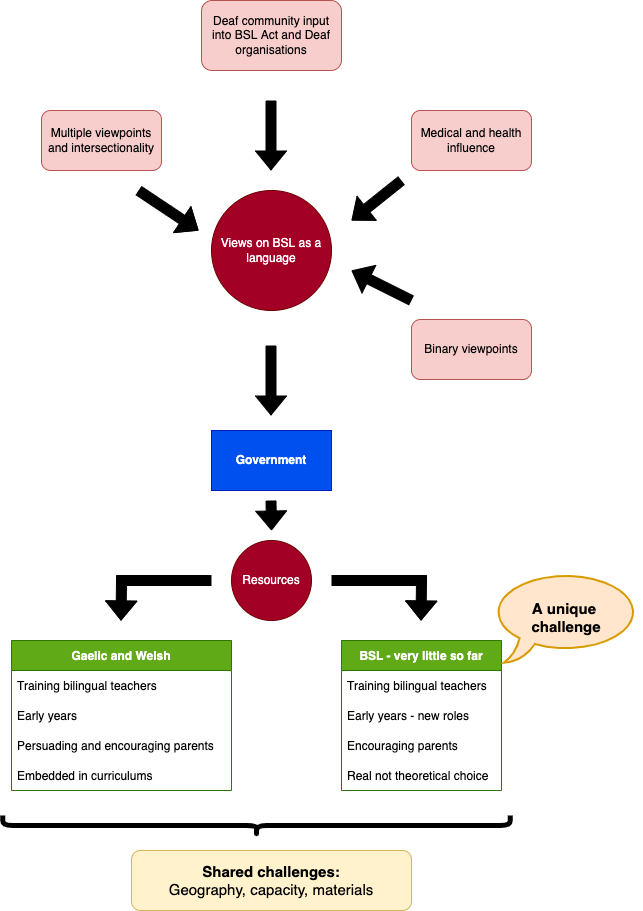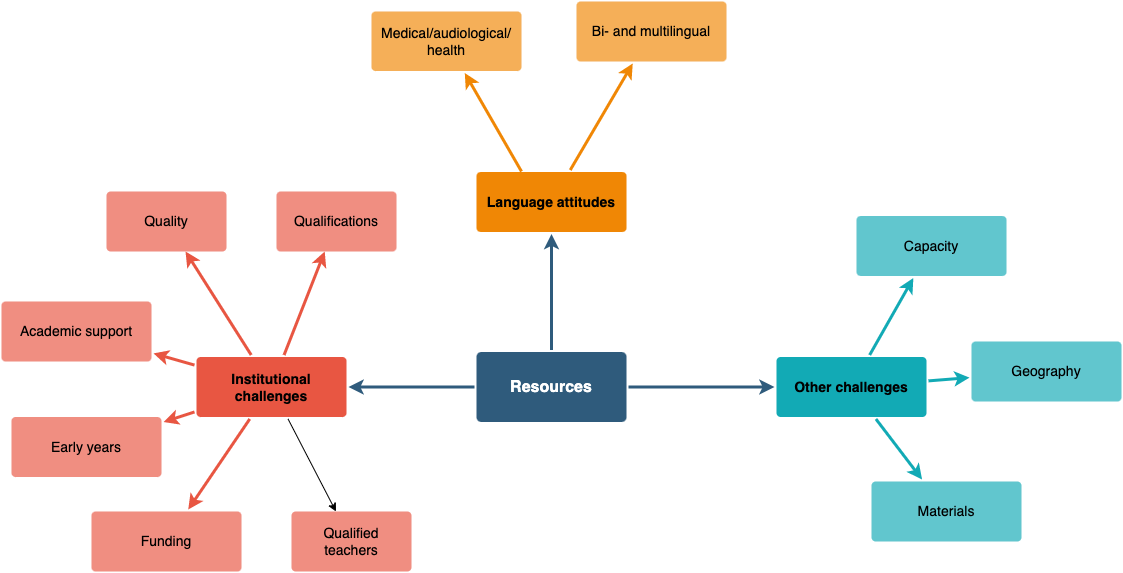We conducted a review of the impact of the Scottish national BSL plan on deaf education, in particular its issues, failures and successes, during Phase 1 of this project.
 We are now delighted to announce that Phase 2 of this project has now been completed, and we have published a report together with a summary which is available in English, BSL, Welsh and Gaelic. Phase 2 would not have happened without the £4,418 awarded to Rob Wilks by the University of South Wales’ Faculty of Creative Industries Early Career Researchers Pump Prime Funding scheme. We are grateful to them for this opportunity.
We are now delighted to announce that Phase 2 of this project has now been completed, and we have published a report together with a summary which is available in English, BSL, Welsh and Gaelic. Phase 2 would not have happened without the £4,418 awarded to Rob Wilks by the University of South Wales’ Faculty of Creative Industries Early Career Researchers Pump Prime Funding scheme. We are grateful to them for this opportunity.
The purpose of the Phase 2 report was to ascertain whether there is an appetite at government or local authority level for deaf children to be educated in either BSL-medium or bilingual schools in Scotland and Wales, which have Welsh- and Gaelic-medium education provision respectively. Nineteen interviews with a total of 21 participants were carried out with Scottish and Welsh Government civil servants, national public body representatives, council officials, college and university representatives, families of deaf children, Teachers of the Deaf and third sector employees.

There were marked differences in the conceptualisation of BSL as a language between top-, mid- and low-level, with the top-level tending to veer towards BSL as a communication tool and having a greater awareness of language policy and the right to language. At the mid- and low-level, there was however, a tendency to frame deaf children according to their audiological status, and that even though health – more specifically audiology – is outside education, it clearly exerts a huge force over the work of Teachers of the Deaf which would explain their attitudes towards BSL. Gaps in early years provision for deaf children also emerged as an important theme, with recognition that it is this period that is vital for language acquisition. The final theme identified through the interview stage was the availability or scarcity of resources in both Wales and Scotland for the teaching of BSL and in deaf education.
We have made 14 recommendations grouped under five headings: early years, language pedagogies, BSL teachers, Teachers of the Deaf and language policy. These include developing a new profession of BSL therapists to support efforts to develop BSL in deaf children in early years, the development of language pedagogies courses, the commissioning of mapping exercise of BSL teachers, the expansion of undergraduate and postgraduate courses to provide opportunities to develop fluency in BSL, initial teaching training courses that incorporate BSL, and training for qualified teachers, supplementary resources and language sabbaticals for qualified teachers and Teachers of the Deaf.
 The summary report is available in BSL, Gaelic, Welsh and PDF. The full report can be found here.
The summary report is available in BSL, Gaelic, Welsh and PDF. The full report can be found here.
The next steps in this project are to publish our findings in journals and to organise a UK-wide deaf education conference in 2023 or 2024 to which stakeholders at all levels should be invited to disseminate knowledge, language pedagogy and best practices.


